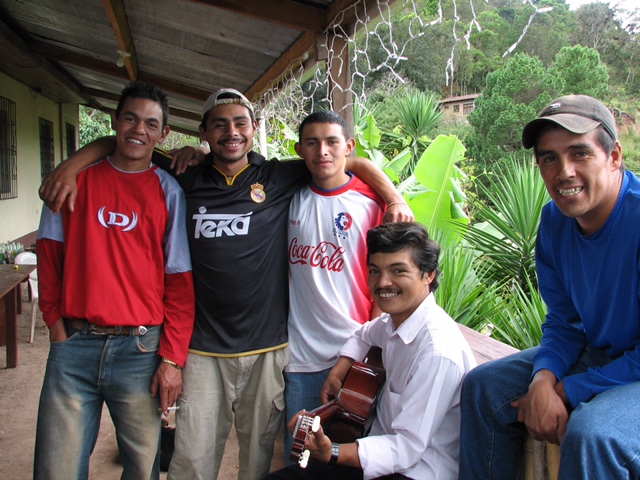EplerWood International leverages innovative, university-tested systems to manage destinations sustainably
EplerWood International provides vital tools and systems for destinations to meet the related challenges of climate change, overtourism, and the Invisible Burden of Tourism.
To build back better after the COVID-19 pandemic, EplerWood International can collaborate with destinations to design destination management and climate action plans based on tested university research.
EplerWood International offers the following services to destination clients:
Depending on the destination’s needs, our team creates a customized engagement that leverages our university-based research on regional planning and Geodesign for tourism, climate and environmental impact accounting, and the facilitation of specialized finance and recovery funds.
Our Holistic Environmental Accounting Tool for Destinations (HEAT-D) — the first carbon accounting tool that assesses GhG emissions per tourist at the destination level—was developed with the prestigious Harvard School of Public Health’s Center for Health and the Global Environment from 2017-2019. EplerWood International can apply this tool to your destination, identifying the infrastructure required to lower impact per visitor and critical needs for climate mitigation and adaptation.
EWI offers sustainable destination management training to enable local stakeholders to analyze tourism impacts on their own destination, utilize our frameworks and tools, and develop the tourism governance structures required for long-term sustainability.
Our new DestInvest service identifies the investment required to protect community and natural resources in tourism destinations, and helps destinations qualify for climate and recovery finance including grants, recovery funding, impact finance, and concessionary funds.
Read about previous projects with globally recognized clients:
GIZ (German Agency for International Cooperation ) and Harvard School of Public Health 2018
 On behalf of Harvard T.H. Chan School of Public Health’s International Sustainable Tourism Initiative (ISTI) EWI created a new framework, the Holistic Environmental Accounting Tourism- Destinations (HEAT-D) Framework, which will help local governments and national planning bodies to measure the Invisible Burden. The HEAT-D helps local governments measure consumption of resources related to tourism activities and monitor progress towards a selected set of environmental strategies holistically – resolving issues with managing a wide range of supply chains by creating one data base for all tourism related activities, using a climate accounting system compatible with the Paris Agreement. Learn more
On behalf of Harvard T.H. Chan School of Public Health’s International Sustainable Tourism Initiative (ISTI) EWI created a new framework, the Holistic Environmental Accounting Tourism- Destinations (HEAT-D) Framework, which will help local governments and national planning bodies to measure the Invisible Burden. The HEAT-D helps local governments measure consumption of resources related to tourism activities and monitor progress towards a selected set of environmental strategies holistically – resolving issues with managing a wide range of supply chains by creating one data base for all tourism related activities, using a climate accounting system compatible with the Paris Agreement. Learn more
Rand Corporation & U.S. Homeland Security 2018
 Developed a plan to assist Puerto Rico with economic recovery after Hurricane Maria lashed the island for thirty hours on September 20, 2017, causing catastrophic impacts. The team proposed investments in an alternative tourism economy, including eco, adventure, gastro, and cultural tourism. Spatial analysis models were developed by Geoadaptive, a Boston-based geodesign firm, to identify and quantify the diverse resources that can provide the critical raw material for new alternative tourism hubs. Hub prioritization then transpired together with local stakeholders. Learn more
Developed a plan to assist Puerto Rico with economic recovery after Hurricane Maria lashed the island for thirty hours on September 20, 2017, causing catastrophic impacts. The team proposed investments in an alternative tourism economy, including eco, adventure, gastro, and cultural tourism. Spatial analysis models were developed by Geoadaptive, a Boston-based geodesign firm, to identify and quantify the diverse resources that can provide the critical raw material for new alternative tourism hubs. Hub prioritization then transpired together with local stakeholders. Learn more
Harvard Business School
 EplerWood International introduced leaders from the Harvard Social Enterprise Initiative to the company Wilderness Safaris for a 3-part case study on how a conservation-oriented business can produce, verifiable results in the sustainable development of destinations- in this case in regions the Okavango Delta region of Africa where elephants and other endangered species find refuge and will need extensive additional corridors in order to survive. Learn more
EplerWood International introduced leaders from the Harvard Social Enterprise Initiative to the company Wilderness Safaris for a 3-part case study on how a conservation-oriented business can produce, verifiable results in the sustainable development of destinations- in this case in regions the Okavango Delta region of Africa where elephants and other endangered species find refuge and will need extensive additional corridors in order to survive. Learn more
Triple Bottom Line Feasibility Study for Symbiosis Resorts in Fiji
 Symbiosis Resorts commissioned a study to investigate the potential of an ecotourism and conservation company in Fiji that would fund a new field station on the Rainbow Reef, which they would use to engage and attract investors. EWI engaged local stakeholders and performed an on-site audit to develop a business model, expansion plan, strategic goals, and a sustainability management system for the company. Learn more
Symbiosis Resorts commissioned a study to investigate the potential of an ecotourism and conservation company in Fiji that would fund a new field station on the Rainbow Reef, which they would use to engage and attract investors. EWI engaged local stakeholders and performed an on-site audit to develop a business model, expansion plan, strategic goals, and a sustainability management system for the company. Learn more


